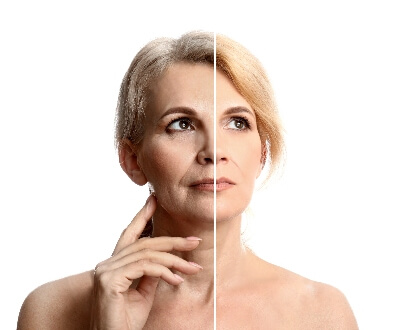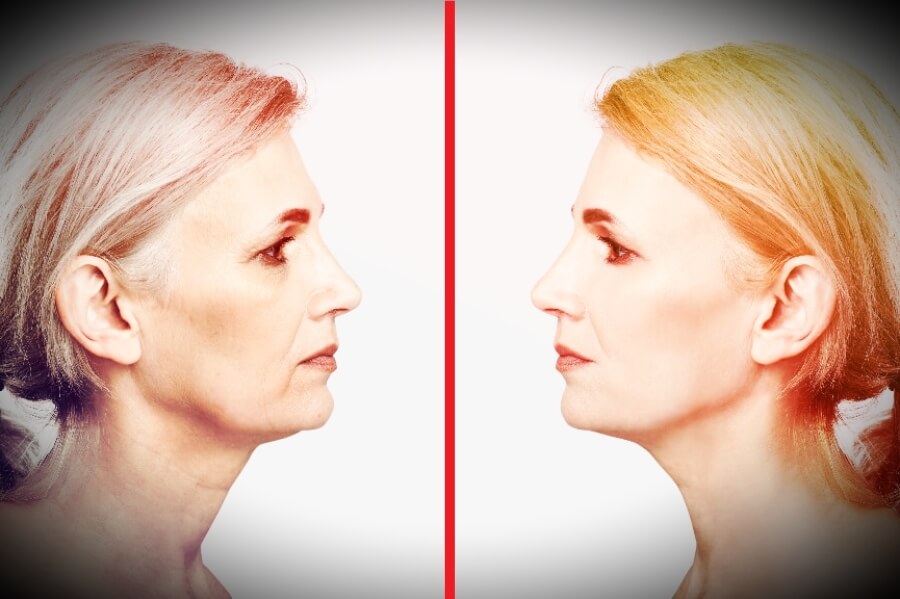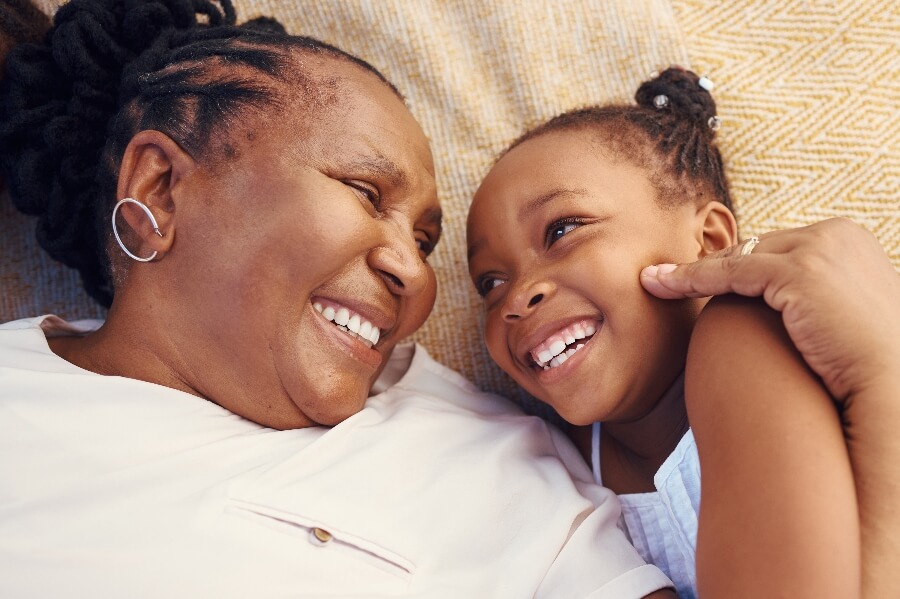A few years ago, I was at a Manhattan rooftop bar and I was feeling good about myself and the world. I had just finished hosting our New York City Out Loud event in a loft over the Hudson River. All around me were the glorious skyscraper lights, as if I was sitting in a pot of gold glitter, and I felt relief and gratitude down to my toes that the night had gone well.
Several impressive women had taken the stage in turns to talk about what was possible at this age—that it was never too late to reinvent yourself, that even the worst moments (cancer, job loss) can lead to important and rewarding discoveries about life and self. I was drinking wine with several friends and one woman (a friend of a friend) I’d never met before, doing a post-mortem on the highs and lows of the events.
“I just didn’t like that you ended the night talking about beauty,” said the new woman. “It seemed to negate everything the other speakers said.”
“Do not go gentle into that good night,” is the rallying call of one side in this debate.
I was shocked, quickly replaying in my mind the conversation between former Allure editor Linda Wells (for whom I once worked) and her pal, the actress Cary Lowell.
“Really?” I said. “I loved what they were talking about. Linda was saying that we shouldn’t judge other women based on how they choose to get older. She said the term `Age Gracefully’ insinuated that there was a right and wrong way to age.”
“But you had all these powerful messages about go out and do your thing, don’t let anyone stop you,” the woman answered. “And then you wind up by talking about the most superficial thing in our experience–beauty.”
That launched a lively conversation, with some of the group saying that beauty is simply one of many interests we have as women, and others saying that worrying about our looks seems to fly in the face of the NextTribe theme of Age Boldly.
How Much Grooming Is Too Much?

I see both sides of this issue almost every time NextTribe publishes a beauty article. Comments usually fall into two camps. One group seems to equate letting nature take its course on our faces and hair with true courage and some purity of feminism.
On the other side are those who take pride in keeping up their looks, and the amount of maintenance these women indulge in runs the spectrum from coloring hair all the way to plastic surgery. “Do not go gentle into that good night,” is the rallying call of this group, who often feels judged by the “I’ve earned these wrinkles and gray hair” types.
There seems to be plenty of judgment to go around on both sides. “You don’t want to encourage this gray hair business,” several friends told me the first year of NextTribe, after we had promoted a “Hooray for Gray Giveaway.” (It was so well received, however, that we ran another such promotion two years later.) The suggestion was that NextTribe would come off as too radical and put off those who liked their beauty routines, thank you very much.
I’ve always been uneasy about any kind of dictates. I’ve thought that if people don’t want to read about Retinol, Botox, eyelash thickeners, or hair color and the like, they can just skip those articles. I’ve highlighted my hair for years, do love a good pedicure and will get a blowout at a salon if I have an important event, but I am woefully inept at keeping to any skin care regimen. Only since my divorce have I taken any serious steps to improve my looks: eyelash extensions and a laser treatment to smooth out the color on my face and neck. Still if I never had to wear make up again I would rejoice, but I do when I have to.
Read More: Getting “Work” Done: How Much is Too Much?
From Mommy Wars to Beauty Battles?
I have friends who are on both sides of this question. Some do nothing more than eat healthily and meditate; others measure the passage of time by the position of their eyebrows on their forehead. Too low and it’s off to the derm for more Botox. I love them all, and sometimes fantasize about what I might look like if I had been more pro-active in the beauty realm and less squeamish.
“I’ve earned these wrinkles and gray hair” is the prevailing attitude of the other side of the issue.
This current situation reminds me of another time when many of us felt judged and maybe insecure. The so-called Mommy Wars, that could still be raging right now for all I know. I don’t keep up with the attitudes and angst of those still in active-duty parenting now that my kids are grown. But I remember distinctly the feeling that maybe I wasn’t doing the mothering thing correctly.
Sometimes I felt I needed to justify my decision to continue working—to others, but mostly to myself. Actually, there really was no decision: I had to work. At the same time, I felt sorry for (and sometimes guilty among) other working moms, wondering how they managed, because I had an office at home.
The conclusion I finally drew was that each one of us was figuring how to make mothering work the best way that we could. It wasn’t really my own conclusion; it was always the denouement of any article about the Mommy Wars. We shouldn’t judge another woman for pursuing what’s best for her.
The Raquel Welch Issue
A lot of us have gone to the mat defending a woman’s right to choose—when it comes to reproductive rights. So why shouldn’t we do the same for how we choose to grow older?
Recently, NextTribe posted a story about Raquel Welch’s 80th birthday. It seemed innocent enough; we regularly write about the milestone birthdays of well-known women. Maybe our misstep was this title: The Spectacular Raquel Welch Shows Us What 80 Looks Like. We meant to echo Gloria Steinem’s phrase, when someone commented how good she looked for age 40. “This is what 40 looks like,” she said.
I’m just looking for I way forward on the tightrope, wishing there was more leeway on each side.
But some NextTribers thought we were holding Welch up as the ideal, which wasn’t what we meant at all. Just one of the many negative responses: “Seriously? You’re going to post somebody as being 80 that [has] spent thousands and thousands of dollars on plastic surgery and try to pass it off as what you’re going to look like [at] 80. You definitely lost a lot of respect by posting this.”
But others came to our defense. Here’s an example of the comments that were more sympathetic to Welch (and us!) “I am shocked & deeply saddened by the hateful outpouring against a woman here of all spaces! I am happy in my body and hold deep compassion for the choices that women made under relentless industry pressures.”
Finally, I decided to amend our post to reflect the controversy. “As any of you have followed NextTribe know we firmly believe women should be free to experience this age any way they would like, without pressure and expectations,” I wrote. “We regret if we have added to the sense that there is a certain way to look as we grow older.”
Whew. Did I cop out? Did I properly defuse the issue? I have no idea. I’m just looking for I way forward on the tightrope, wishing there was more leeway on each side.
Prevailing Attitudes

My laissez faire attitude toward upkeep is actually more common than I expected. We put out an informal poll within one of our Facebook groups and the majority of respondents answered, “I color my hair but other than that I do little maintenance.” Only a handful answered, “I’m for doing anything science/the beauty industry has to offer to keep me looking my best.” Of course, people could be fibbing since this wasn’t an anonymous poll.
Many women who took the poll added comments, with the general consensus being that we shouldn’t judge others, and that exercise, good nutrition, and meditation are the interventions that really matter when it comes to looking and feeling our best. Also, a point was made that rather than wanting to look “younger” (and thus denying our age), some women just want to look their best.
Some commenters were refreshingly honest about their intentions and motivations. “I admire women who `age gracefully but naturally,’” said Sheila Stainback. “But I’m vain and am leaving my options open for getting non-surgical work done.”
Women of means tend to look so much better than the rest of us and that becomes more and more true as we age.
Jane Heller reported that she colors her hair and gets Botox between her eyebrows every three months. “I feel sad, not judgmental, for women who go overboard with fillers and surgery because they don’t realize how artificial they look,” she said. “But by the same token, I have hereditary under-eye bags and would have that surgery in a second if I had the nerve.”
However, some commenters confessed to judging others and feeling judged themselves for various reasons.
“I have felt judged for caring about my looks—among intelligent, educated, often professional women,” said Stacy Keaton Alexander. “There are so many more important things to focus on. But at the end of the day, how we maintain ourselves is probably directly aligned with our notions of beauty and those notions are widely varied too.”
There certainly is scorn all along the spectrum of grooming and maintenance, as Melanie Howard points out. “I have judged women who have totally altered their appearance through surgery,” she said, “but I guess that’s the same as `I’m going gray and wearing no makeup’ women judging me.”
Read More: Diary of an Eyelift: Yes, I Did It—and I Love It
Financial Reality
Christine Grillo, who has written many wonderful articles about the realities of finances at this age, made an important point that reminds us that this debate falls under the “nice problem” category. “Women of means tend to look so much better than the rest of us and that becomes more and more true as we age,” she said. “A lifetime of dermatologic care and other kinds of beauty care really add up by the end.”
As someone who loves makeup, Botox, and good skin care products, Lesley Dormen confirms the economic aspect to this divide. “[Money] is a real factor,” she said. “At 73, I want to look and be as healthy, smoothed and toned as my pocketbook allows (and then some) but I sometimes worry about losing track of myself in the mirror (Joan Rivers effect). I’m not remotely near that nightmare scenario but looking/feeling my best outer self feels more celebratory than un-liberated.”
Celebratory. Un-liberated. These words seem to encapsulate the feelings on either side—those who are fine with help, and those who aren’t. I just wish there was another word that was predominant in this discussion: Accepting. Accepting that age will leave its mark on our appearance and accepting that no one will react the same way to that fact.
Read More: Hiding Botox From My Husband…And Justifying It To Myself
A version of this story was originally published in September 2020.





















0 Comments